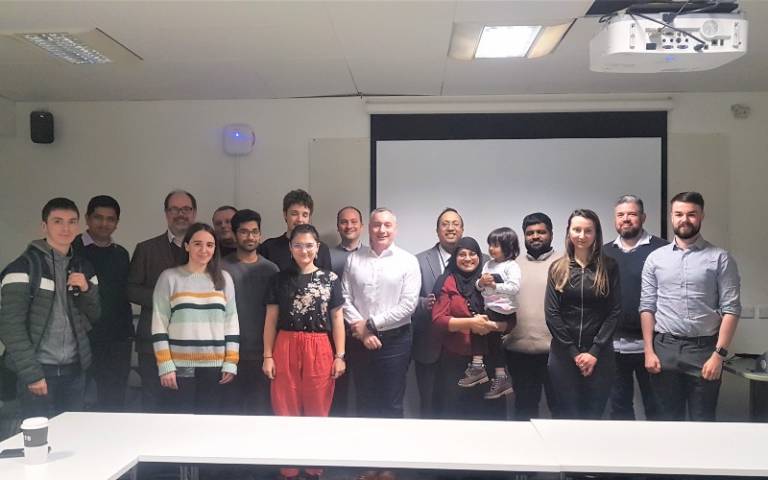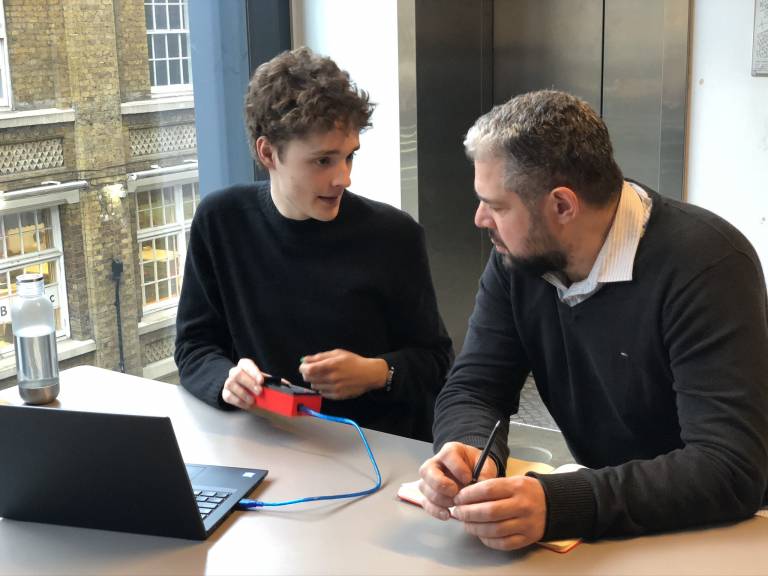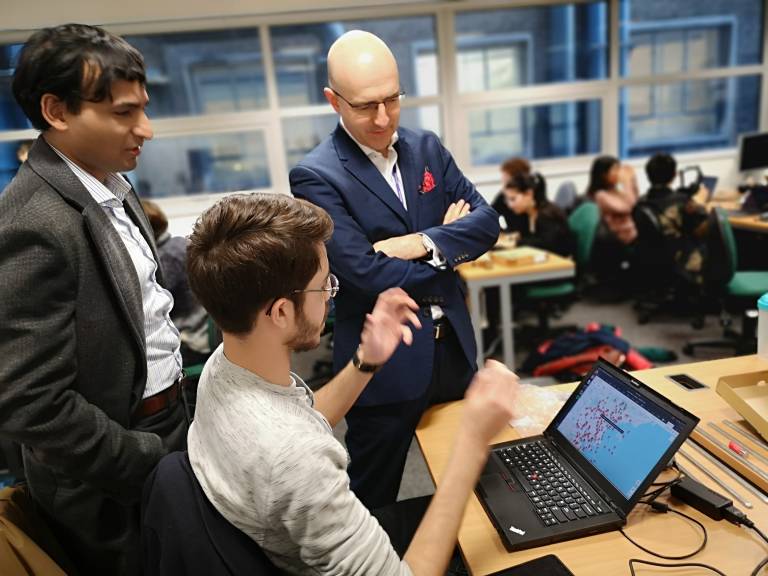UCL CS students build over 100 FHIR demonstrators for GOSH and the NHS in hackathon
6 March 2020

Interoperability in healthcare is now a fundamental principle that needs effort on all fronts, for all of us. UCL Computer Science has been pioneering Open Electronic Healthcare Record systems since the 90s, thanks to Prof David Ingram and other giants in the field of Health Informatics. For the past 3 years, UCL CS together with GOSH DRIVE, have had a significant number of students pioneering prototypes with the latest FHIR (Fast Healthcare Interoperability Resources) standards that make healthcare systems talk better to each other. The UCL IXN and the national IXN for the NHS programme has been championing Interoperability, Efficiency and Innovation as key goals for all healthcare Proof of Concepts development with clinical partnerships across the country.

GOSH FHIRworks 2020 with the UCL IXN, our latest 2-day hackathon on March 2nd and 3rd, has seen over 100 FHIR demonstrators being built as open source, for GOSH DRIVE and the NHS. Our students have been building on a testbed GOSH Azure implementation from Aridhia using synthetic patient records as the base - with the twist of connecting it to any developer environment, any technology stack and any platforms that had a significant use case. Prof Neil Sebire, Director for GOSH DRIVE gave the keynote highlighting the need for applications of FHIR (and SMART on FHIR) to be explored, and what better way to engage a syllabus of manufacturing open source packages for healthcare than to pair it with the latest and greatest technologies in the world today.
“Amazing projects in 48 hours, can’t wait to see the best ones taken forward by DRIVE and more widely. Hackathons are a huge amount of behind the scenes work, so many thanks." - Prof Neil Sebire

We tasked the hackathon with 15 broad criteria to explore FHIR - but it is entirely the UCL CS students who have outdone anything before them with their own ideas. From demonstrating FHIR demos with Samsung Watches and Intel portable NUC computing hardware, to making use of IBM Watson and Microsoft Azure services with FHIR, creating NLP chatbots with Google BERT, automating video conferencing over Skype and MS Teams with FHIR, filtering FHIR data aggregation on Google Maps, rendering patient FHIR records in HoloLens 2 holographics, VR (Oculus) and AR (Apple) pulling in FHIR information into game engine templates, IoT devices with 3D printing recognising FHIR records and multilingual voiceprint analysis in TensorFlow... This is the spirit of invention.
“Superb work by all of our students who have contributed ideas across their field interests as part of our UCL IXN programme. We are really grateful for their efforts and look forward to many of these being published as open source for GOSH and the NHS." - Dr Dean Mohamedally
Our students were reviewed by a wonderful guest team of industry technology specialists, from Aridhia, NTTData, IBM, Intel, GOSH and EMIS Health alongside NHS staff. We also held a Dragons Den session for 6 selected students to explore the potential of their projects and to encourage further thinking of how to bring the best of their tech ideas into fruition.
Thanks to GOSH DRIVE, Prof Neil Sebire, Sheena Visram, Dr Atia Rafiq, Daiana Bassi, Usman Bahadur, Jo Stiles, Wendy Richards, Dave Twiselton, Dr Graham Roberts, the CS comms team, all of the CS students who participated around the clock, the staff who came to support and the companies that came together to unite healthcare with FHIR for GOSH and the NHS that made this hackathon possible.
We are looking forward to the winning submissions of the hackathon, and for the prize winners to be announced on 26th March 2020.
 Close
Close

